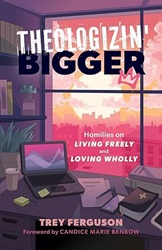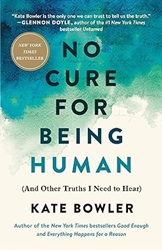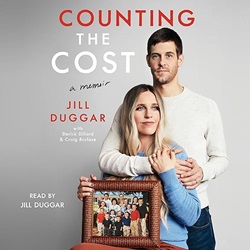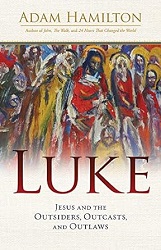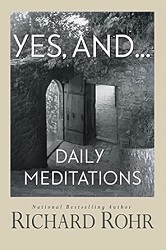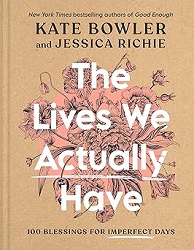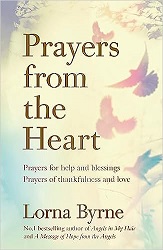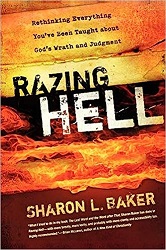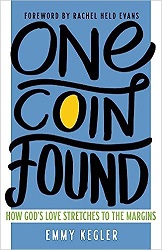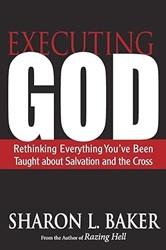 Executing God
Executing God
Rethinking Everything You’ve Been Taught about Salvation and the Cross
by Sharon L. Baker
Westminster John Knox Press, 2013. 205 pages.
Review written December 28, 2023, from my own copy.
Starred Review
2023 Sonderbooks Stand-out: #2 Christian Nonfiction
After reading Sharon L. Baker’s book Razing Hell that demonstrates the Bible’s teachings about hell aren’t necessarily what we’ve been taught, I was ready to read what she has to say about the cross and the atonement.
This book reminded me of Tony Jones’ book, Did God Kill Jesus?, since both books look at historical theories of the atonement and show us why those that have been commonly taught worship a violent God instead of a loving, restoring God. Sharon L. Baker is a university professor, so her book is a little more academic, but because of that gives us a thorough and detailed case for taking a fresh look at the cross of Christ.
She makes the case right at the beginning that if you believe God orchestrated the violence done to Jesus, you will tend to not have a problem with violence yourself. And beyond that, the story told that way isn’t attractive to unbelievers. If God can only forgive us when paid off by violent death of his innocent Son, how is that even forgiveness?
But don’t weigh her argument from my summary. The author is meticulous in her approach, spending chapters on the historic ways Christians have looked at the atonement. You might be surprised that most of the theories churches teach today were developed hundreds of years after Christ’s death, including the Satisfaction Theory developed in medieval times to appeal to people living under feudal systems. Sharon Baker looks at the meaning of justice, forgiveness, and sacrifice, and how they relate to the cross.
Now, I was easily swayed, since I’ve already read similar books on this topic including Did God Kill Jesus?, by Tony Jones, A More Christlike God, by Bradley Jersak, Nothing But the Blood of Jesus, by J. D. Myers, and Creation and the Cross, by Elizabeth A. Johnson. Where this book shone for me was in the later chapters, where she pulls the ideas together and talks about her view of God’s atonement, forgiveness, and restorative justice. It was especially meaningful to me to finish reading the book on Christmas Day, because her view is that Christ’s atonement is very much wrapped up in the life and incarnation of Jesus.
Here’s a paragraph about the meaning of the Incarnation:
Because of the incarnation, something tangible happens on a cosmic level to change our relationship with God and with each other. In the words of Cyril of Alexandria, “God made human flesh his own.” Or, in other words, regardless of the way we might think of the divinity of Jesus, God descended into the human condition by becoming one of us with a human body and mind. But there’s a bit more to it. In Jesus, two natures were united – human and divine. And since the son has taken on humanness, the two natures are united in Jesus. So he took what belonged to him – the life of God – and gave it to us. And he also took to himself what belonged to us – humanity – and healed it, restored it, and transformed it into what God created us to be. What a sweet gift. Jesus participated in humanity and in the process healed and reconciled it so that humanity could participate in God. In other words, he lifted human nature into the Godhead (Eph. 2:6). We could say that God descended to us in our humanity so we could then ascend to the life of God.
I also loved her discussion of forgiveness and how God has never required payment to forgive. Here’s a bit of that:
If we look at the life and teachings of Jesus we see a vastly different image of God. We see a God of love and peace, who freely forgives sin without first balancing the cosmic accounts. As the fullest revelation of God, Jesus never demands retribution. He never talks about his offended honor. He forgives and heals and saves unconditionally. He is the Prince of Peace who reveals to us the true nature of God and tells us so when he says, “whoever has seen me has seen the Father” (John 14:9).
She talks about how the violence of the cross came from humans, not from God:
What would have happened if Jesus, in terrible pain on the cross, had commanded an army of angels to come and wipe out his persecutors? What would have happened if Jesus had bought into the violent response of Peter when the Romans came to arrest him? Violence, bloodshed, death, maybe even war, right? But instead, Jesus responded in the opposite way. He commanded Peter to put away his sword and he spoke words of forgiveness from the cross. In so doing, he broke the cycle of violence and reconciled us to God so that we could spend an eternity celebrating and enjoying our restored relationship with a God who loves us. Which brings God more glory – retribution or restoration? I think the answer is obvious.
And more about restorative justice:
Actually, we might say that sin condemned and punished through retribution is sin condemned without hope for redemption. But sin exposed through righteousness, with the intent to restore the sinner to God, is grounded in the hope of salvation. So instead of saying that God inflicted the pain of the cross on Jesus as a penalty for our sin, we can say that the horrific nature of the cross exposed and condemned the gravity of our sin. After all, human beings are the ones who put Jesus to death, not God.
And remember, Jesus never said anything about coming to receive punishment for sin, but he said quite a bit about forgiving it. The righteousness of God in Jesus transcended the retributive aspects of the law and brought about our forgiveness — think about Jesus’ prayer for our forgiveness from the cross. In this manner, Jesus gave us his life and revealed to us the law of love that restores us to God and to each other. The Bible tells us that no greater love exists than this (John 15:13).
This part resonated when I was reading it at Christmastime:
Reconciliation through forgiveness brings peace between formerly conflicting parties – in this case, God and humanity. The book of Ephesians tells us that Jesus proclaimed peace to those of us who were far from God and to those who were nearer to God (2:15-20). And Jesus proclaimed this peace by something that speaks louder than words – by his actions. Even though he suffered because of our sinful actions in putting him to death, Jesus sought to forgive and to reconcile us to God, bringing peace, love, and restoration not only between God and humans but among those in conflict with each other – Jews, Gentile, male, female, slave, and free. Peace all the way around! But isn’t that what the angels declared at the birth of Jesus – peace on earth, goodwill to all people?
This is a point I’ve often read in George MacDonald’s writings:
Jesus did not die in order to win God’s love for us, but to win us over with God’s love. God’s love went to the limit for us, dove into the depths of the human condition, suffered the consequences of our sin by dying a terrible death as an innocent man. And in the midst of that suffering love, Jesus revealed the greatest love of all – forgiving his enemies and praying to God to do the same. Through the incarnation, God took on human flesh and gave human flesh the life of God.
Here’s how she finishes up the main text of the book (with lots of notes and an index to come – she’s an academic):
It takes one to forgive and two to reconcile. Although God freely forgives all of us without condition, we can choose to enter fully into the equation in order for reconciliation with God to happen. And this reconciliation takes place as we turn back to God. God lifts us up into the life of God and we participate joyfully in the new life we have in Christ. We can interpret the cross of Jesus as at-one-ment that deconstructs notions of a violent God bent on retributive justice. We see that the justice of God is love and that love forgives, transforms, and seeks to create new and harmonious relationships. Through the forgiveness of God, a way is opened up for the transformation of all humanity (all creation, to be exact). Through the cross of Jesus, we are forgiven without condition, accepted as we are. Through repentance we are reconciled with God and transformed into those who live in the power of divine love.
Divine justice, therefore, is the act of loving and forgiving, a bottomless, endless, profoundly absurd forgiveness that reaches out in love to all humankind. Our response-ability is to receive it, to enter into the forgiveness of God, reconciled and restored. If, that is, we have eyes to see and ears to hear:
Yahweh is tender and compassionate,
slow to anger, most loving;
his indignation does not last for ever,
his resentment exists a short time only;
he never treats us, never punishes us,
as our guilt and our sins deserve.
— Ps. 103:8-10 Jerusalem Bible
If, like me, you find that vision of God’s restorative justice beautiful, but if maybe you aren’t sure how to fit that picture with what you’ve been taught about the Bible – in that case, I highly recommend this book.
Buy from Amazon.com
Find this review on Sonderbooks at: www.sonderbooks.com/Nonfiction/executing_god.html
Disclosure: I am an Amazon Affiliate, and will earn a small percentage if you order a book on Amazon after clicking through from my site.
Disclaimer: I am a professional librarian, but the views expressed are solely my own, and in no way represent the official views of my employer or of any committee or group of which I am part.
What did you think of this book?
